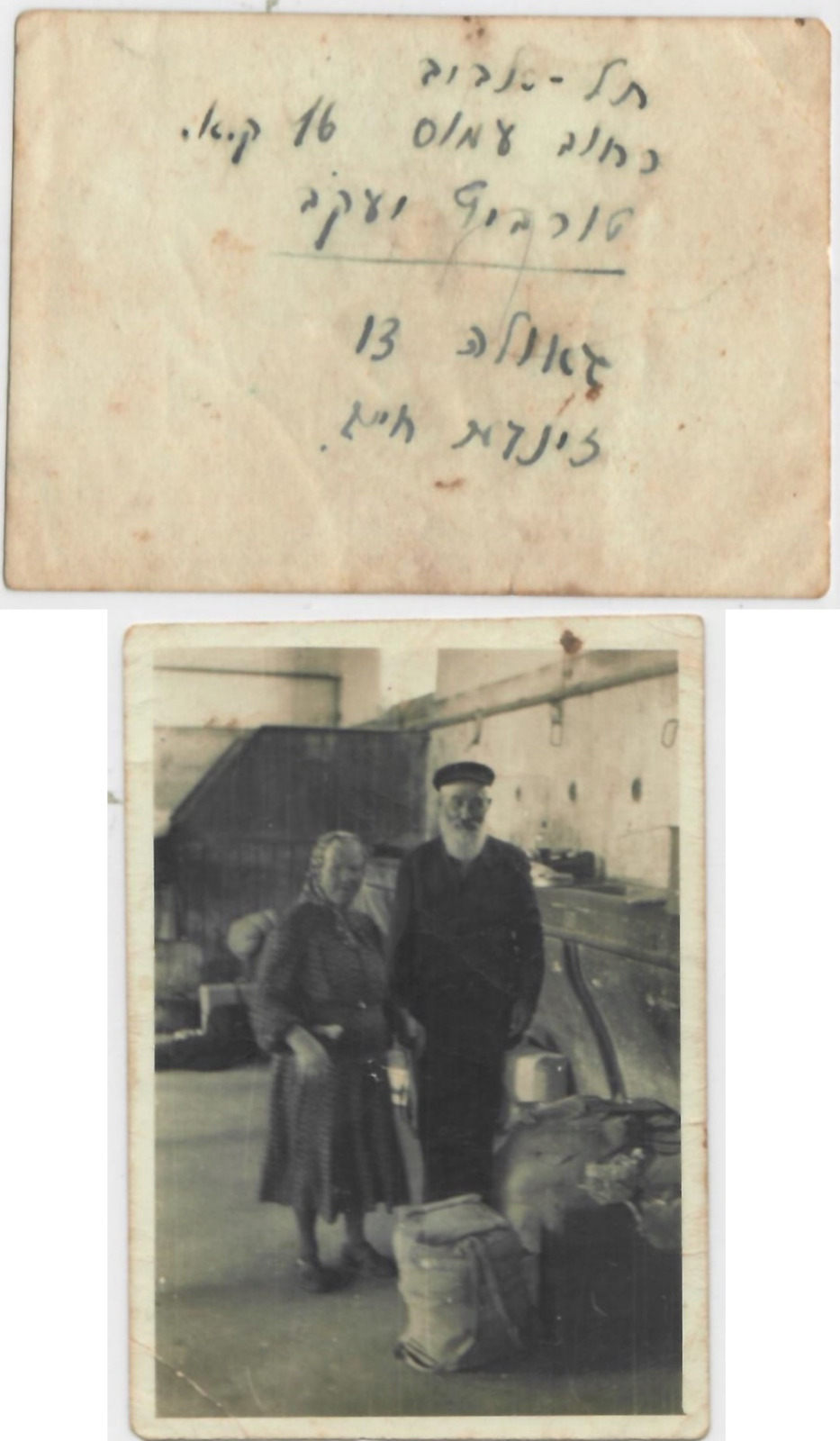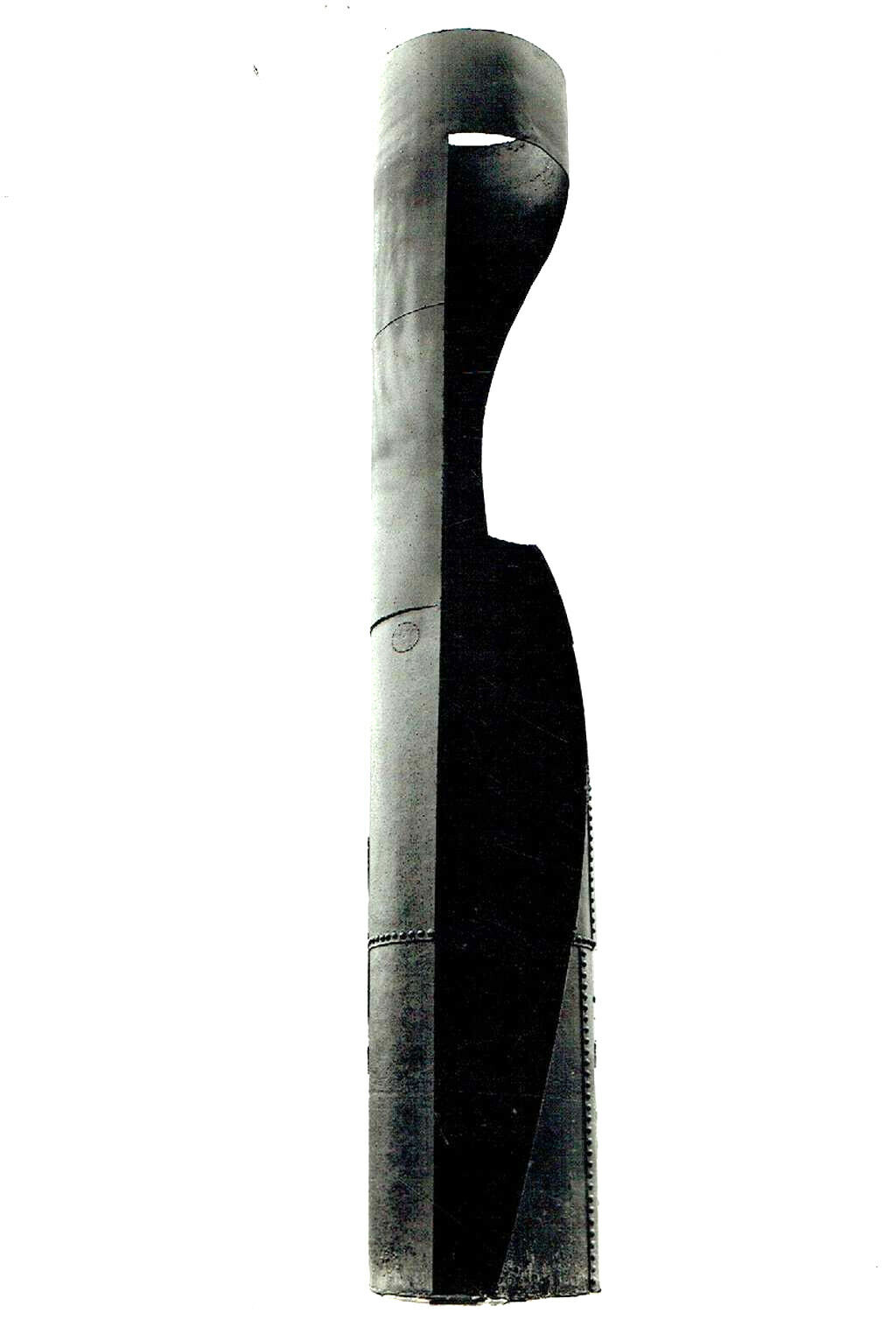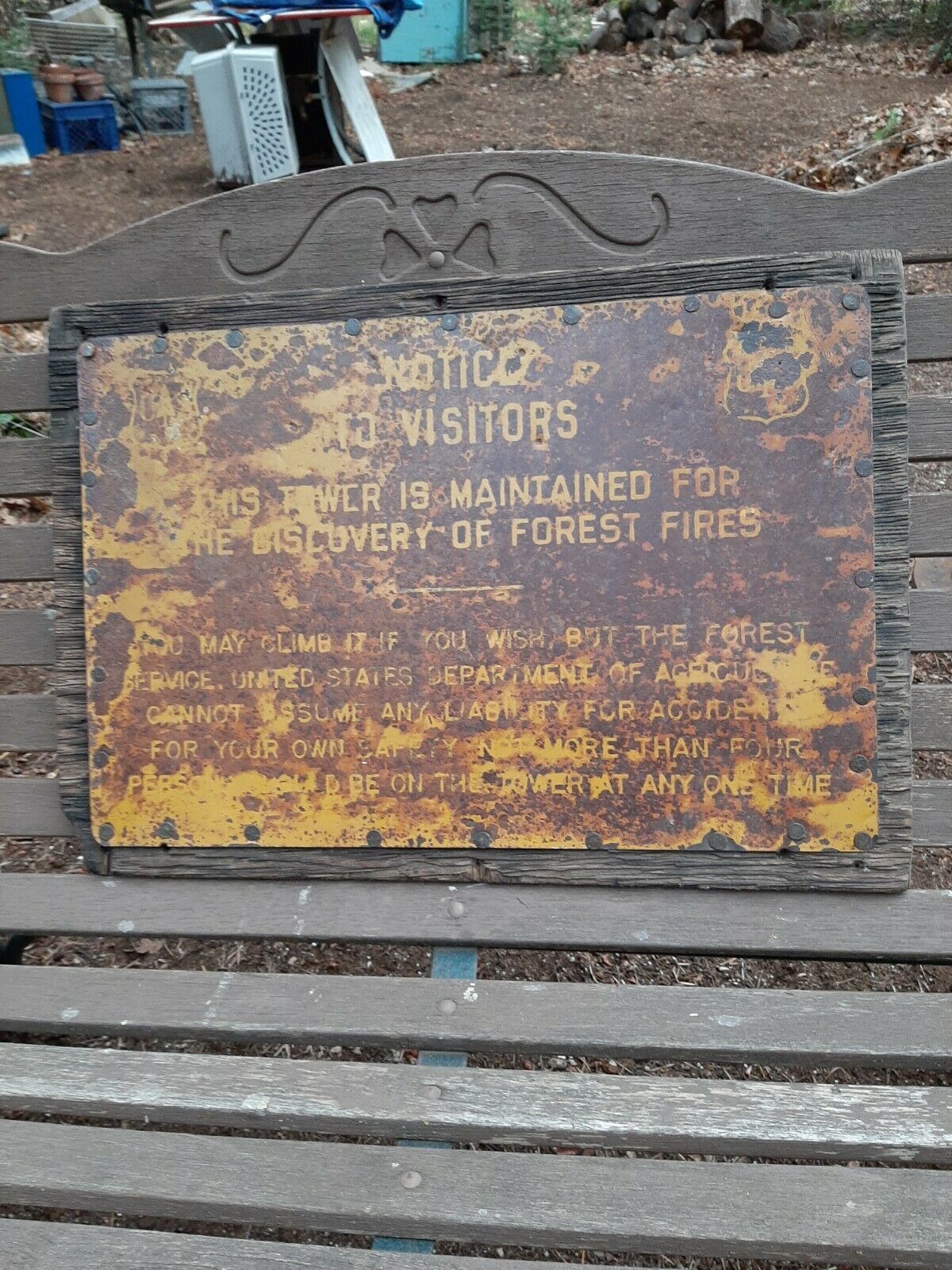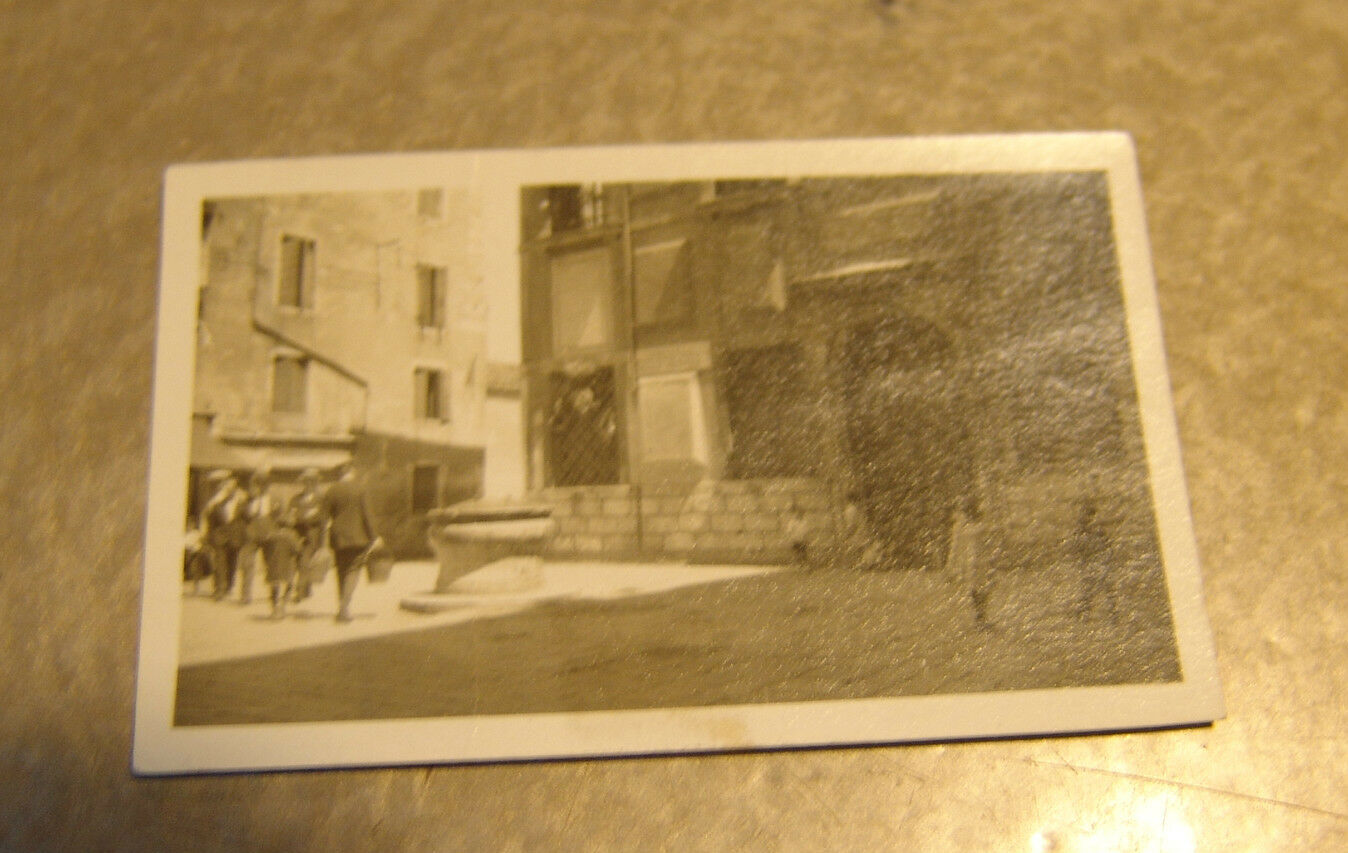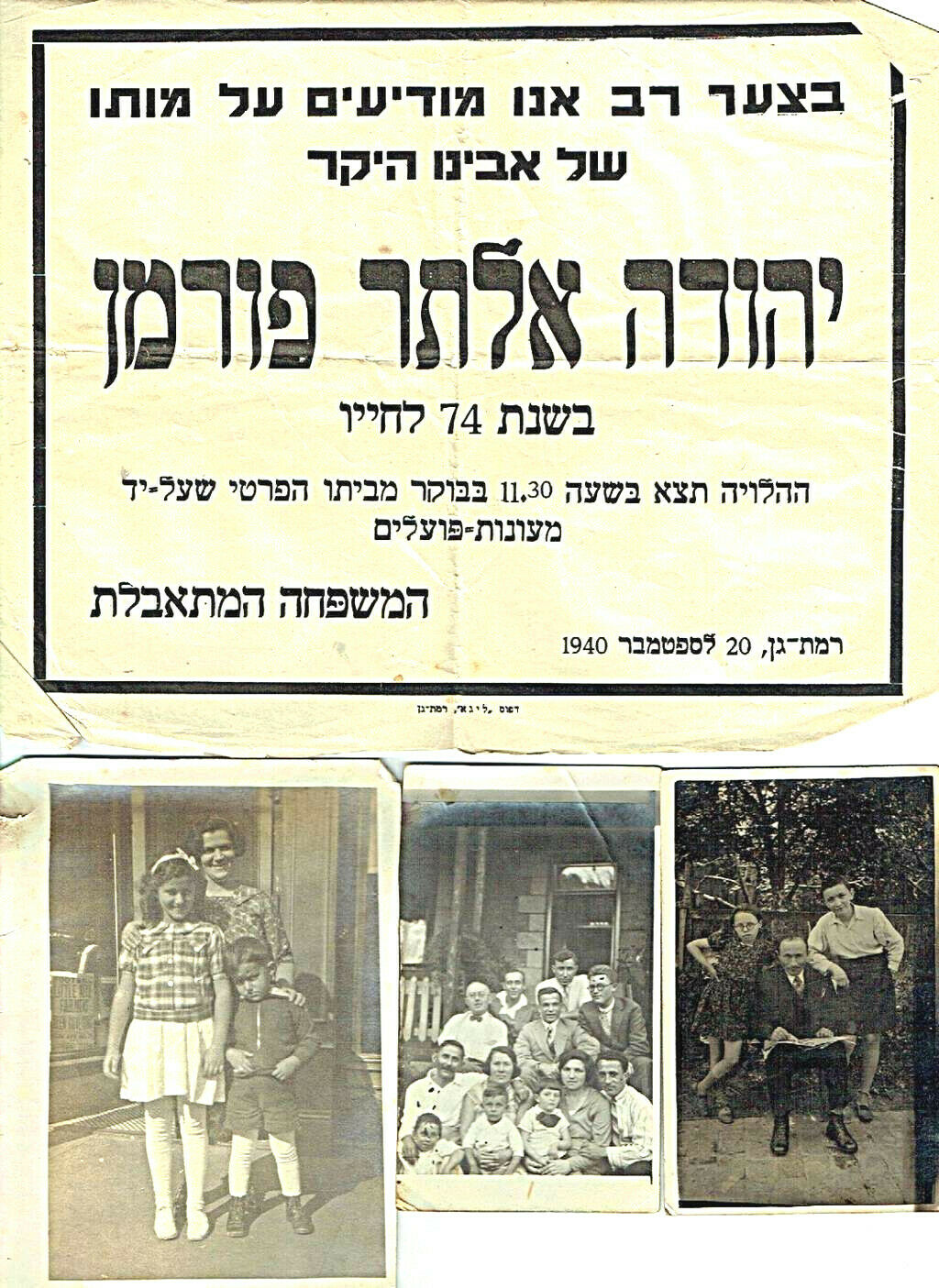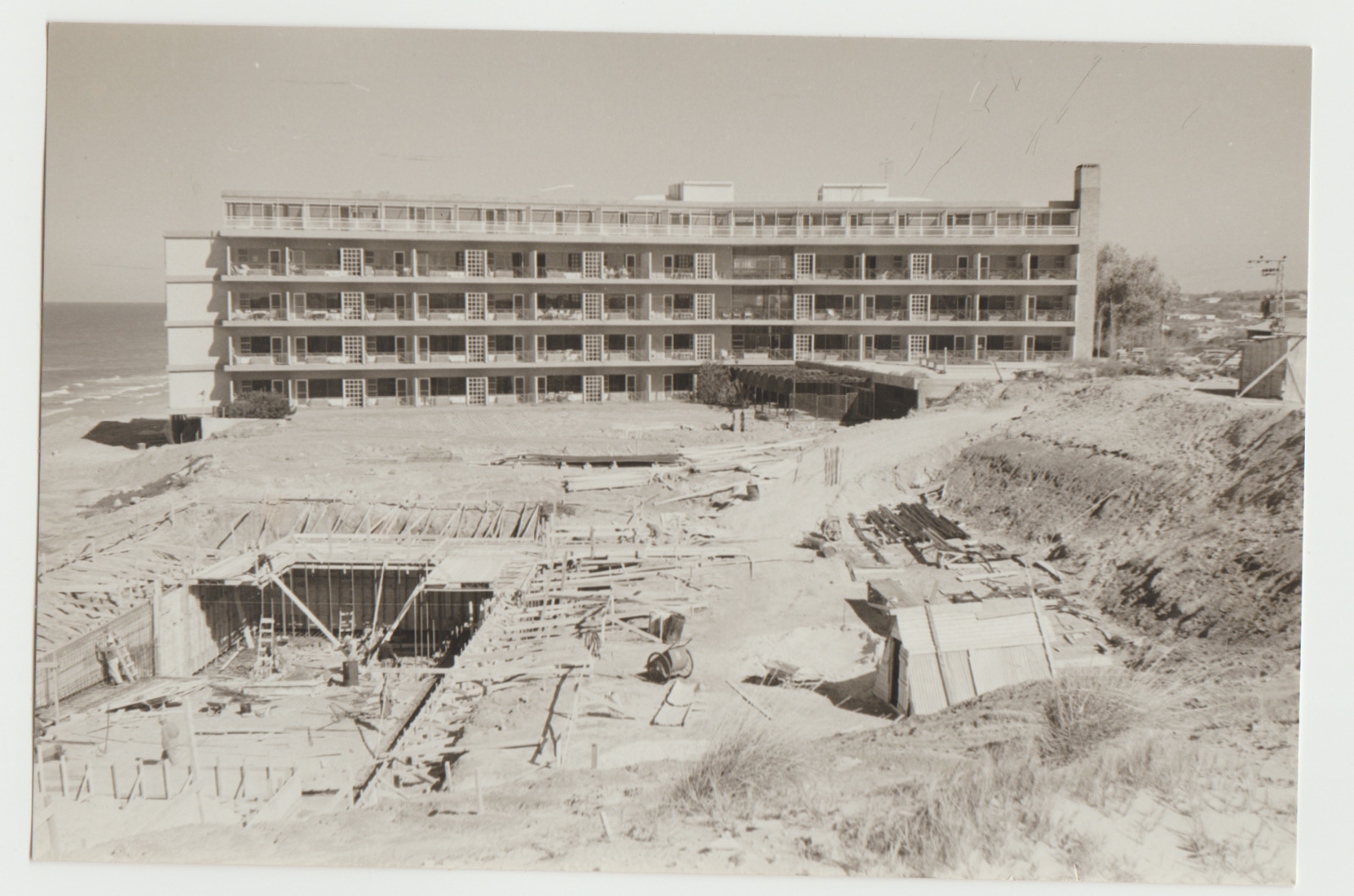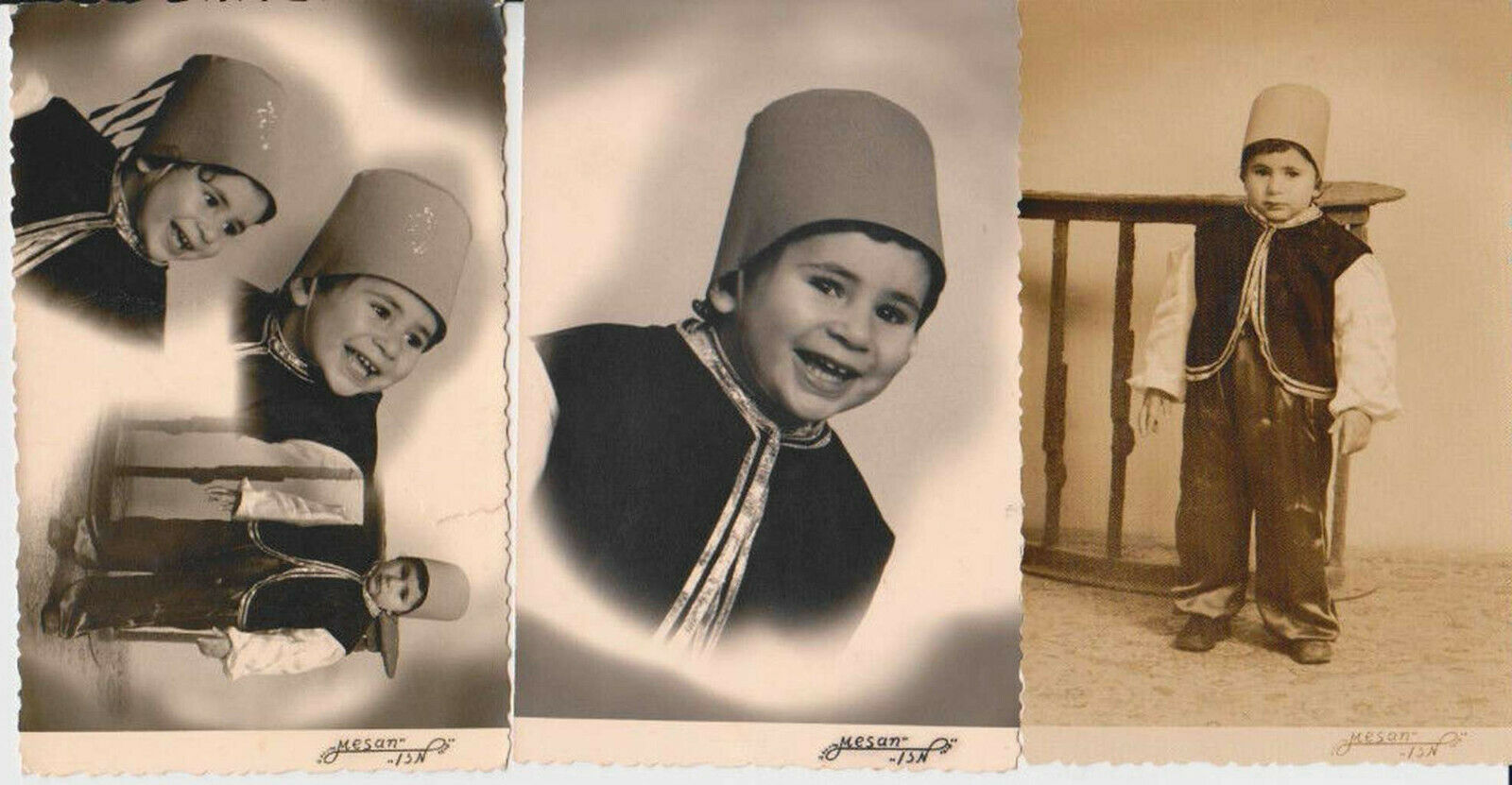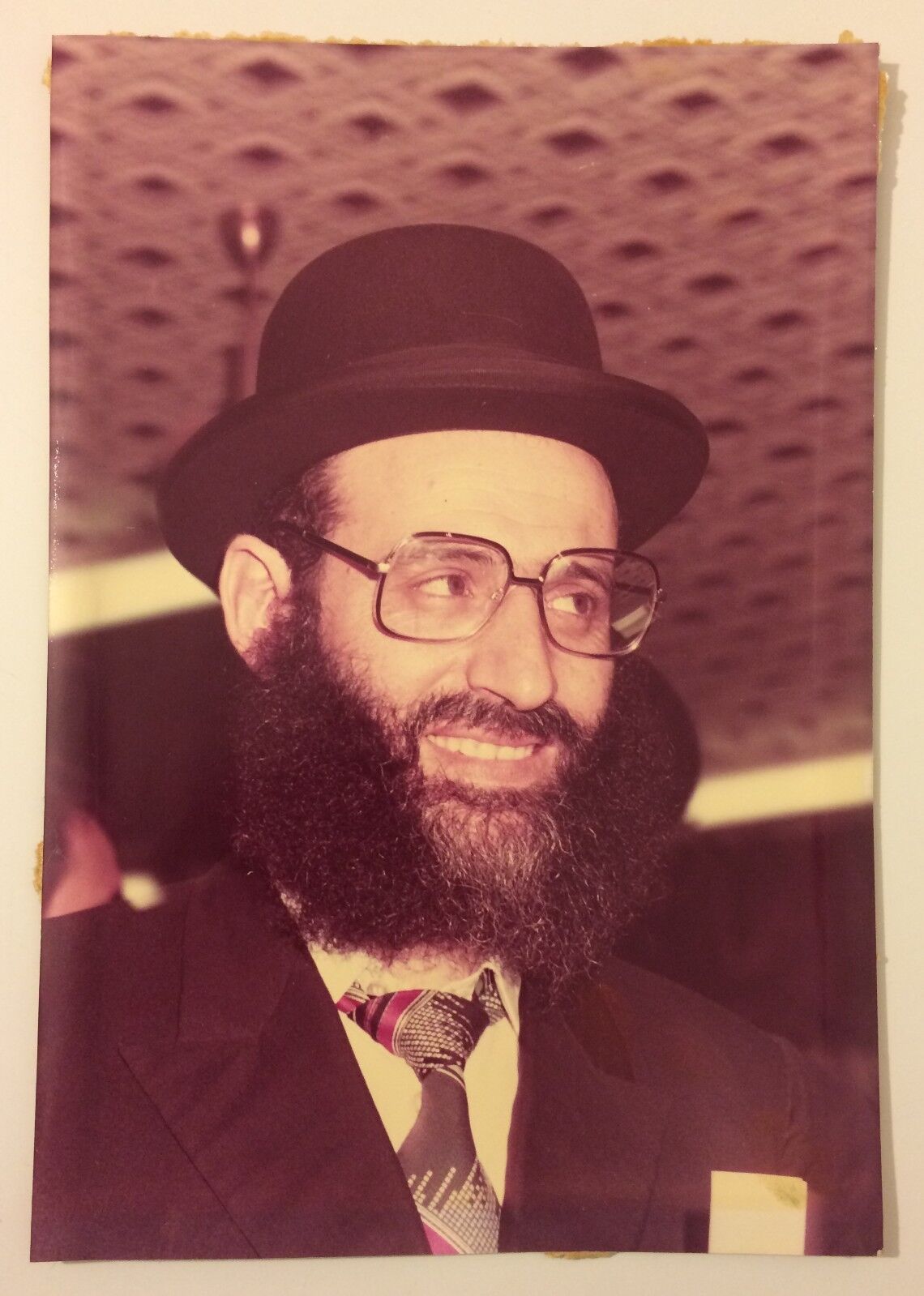-40%
Israel KELLY'S HEROES Movie FILM POSTER Hebrew EASTWOOD - SAVALAS - SUTHERLAND
$ 46.99
- Description
- Size Guide
Description
DESCRIPTION:
Here for sale is an EXCEPTIONALY RARE and ORIGINAL
40
years old POSTER for the ISRAEL 1978
re-release of the most beloved and popular WAR
COMEDY
film "
KELLY'S HEROES
" in the small rural town of NATHANYA in ISRAEL. Starring
CLINT EASTWOOD , TELLY SAVALAS , DONALD SUTHERLAND , CARROLL O'CONNOR and HARRY DEAN STANTON
to name only a few
. The cinema-movie hall " CINEMA SHARON" , A local Israeli version of "Cinema Paradiso" was printing manualy its own posters , And thus you can be certain that this surviving copy is ONE OF ITS KIND. Fully DATED 1978
. Text in HEBREW and ENGLISH
.
The ISRAELI distributors of the film provided the poster with a brand new Hebrew name " The BRAVE ONES behind the ENEMY LINES" as well as quite archaic and amusing HEBREW text .
Size around 27" x 30" ( not accurate ) .
Printed in red and blue . The condition is very good .
2
folds . Slightly stained. ( Pls look at scan for accurate AS IS images ) Poster will be sent rolled in a special protective rigid sealed tube.
PAYMENTS
:
P
ayment method accepted : Paypal
& All credit cards
.
SHIPPMENT
:
SHIPP worldwide via registered airmail is $ 25. Poster will be sent rolled in a special protective rigid sealed tube. Handling around 5 days after payment.
Kelly's Heroes is a 1970 American war film, directed by Brian G. Hutton, about a group of World War II American soldiers who go AWOL to rob a bank behind enemy lines. The film stars Clint Eastwood, Telly Savalas, Don Rickles, Carroll O'Connor, and Donald Sutherland, with secondary roles played by Harry Dean Stanton, Gavin MacLeod, and Stuart Margolin. The screenplay was written by British film and television writer Troy Kennedy Martin. The film was a US-Yugoslav co-production, filmed mainly in the Croat village of Vižinada on the Istria peninsula. Contents 1 Plot 2 Cast 3 Production 4 Deleted scenes 5 Reception 6 Musical score and soundtrack 7 DVD 8 See also 9 References 10 Bibliography 11 External links Plot[edit] During a thunderstorm in early September 1944, units of the 35th Infantry Division are nearing the French town of Nancy. One of the division's mechanized reconnaissance platoons is ordered to hold their position when the Germans counterattack. The outnumbered platoon also receives friendly fire from their own mortars. Private Kelly, a former lieutenant scapegoated for a failed infantry assault, captures Colonel Dankhopf of WehrmachtIntelligence. Interrogating his prisoner, Kelly notices the officer's briefcase has several gold bars disguised under lead plating. Curious, he gets the colonel drunk and learns that there is a cache of 14,000 gold bars, worth ,000,000, stored in a bank vault 30 miles behind enemy lines in the town of Clermont. When their position is overrun and the Americans pull back, a Tiger I kills Dankhopf. Kelly decides to go after the gold. He visits the opportunistic Supply Sergeant "Crapgame" to obtain the supplies and guns that will be needed for the operation. A spaced-out tank platoon commander known as "Oddball" and his three M4 Sherman tanks from the 6th Armored Division invite themselves into the plan. With their commanding officer, Captain Maitland, busily pursuing opportunities to enrich himself and seriously neglecting the welfare of his troops, the men of Kelly's platoon are all eager to join Kelly. After much argument, Kelly finally persuades cynical Master Sergeant "Big Joe" to go along. Kelly decides that his infantrymen and Oddball's tanks will proceed separately and meet near Clermont. Oddball's tanks fight their way through the German lines, managing to destroy a German railway depot, but their route is blocked when the bridge they need to cross is blown up by Allied fighter-bombers. This forces Oddball to bring a bridging unit in on the caper. An American fighter plane mistakes Kelly's group for the enemy, destroying their vehicles and forcing them to continue on foot. They stray into a minefield, and Private Grace is killed. Kelly's troops engage an enemy patrol; PFC Mitchell and Corporal Job, still stuck in the minefield, are killed. The two units rendezvous two nights later. They battle their way across the river to Clermont, losing two of the three tanks and leaving the bridging unit behind. When intercepted radio messages from the private raid are brought to the attention of the gung-ho Major General Colt, he misinterprets them as the efforts of aggressive patrols pushing forward on their own initiative and immediately rushes to the front to exploit the "breakthrough". Kelly's men find that Clermont is defended by three Tiger tanks of the 1st SS Panzer Division with infantry support. The Americans are able to eliminate the German infantry and two of the Tigers, but the final tank parks itself right in front of the bank and Oddball's Sherman breaks down, leaving them stalemated. At Crapgame’s suggestion, Kelly offers the German tank commander and his crew an equal share of the loot. After the Tiger blows the bank doors open, the Germans and Americans divide the spoils and go their separate ways, just barely managing to avoid meeting the still-oblivious General Colt, who is blocked from entering Clermont by the French residents who have been deceived by Big Joe into thinking that General Charles de Gaulleis coming. Not long after the freelancers have gone, Captain Maitland enters the bank, to find a Kilroy and the words "Up Yours, Baby" painted by one of Kelly's crew on the wall. Cast[edit] Clint Eastwood as Private Kelly Telly Savalas as Master Sergeant "Big Joe" Don Rickles as Staff Sergeant "Crapgame" Carroll O'Connor as Major General Colt Donald Sutherland as Sergeant "Oddball" Gavin MacLeod as PFC "Moriarty" Shepherd Sanders as "the Turk" Stuart Margolin as Private "Little Joe" Jeff Morris as PFC "Cowboy" Hal Buckley as Captain Maitland Richard Davalos as Private Gutowski Perry Lopez as Private "Pachuco" Petuko Tom Troupe as Corporal Job Harry Dean Stanton as Private Willard Len Lesser as Tech Sergeant Bellamy David Hurst as Oberst Dankhopf George Savalas as First Sergeant Mulligan Karl-Otto Alberty as Tiger tank commander Ross Elliott as Colonel Booker Production[edit] The project was announced by MGM in November 1968 under the title of The Warriors.[5] Filming commenced in July 1969 and was completed in December.[2] The film was made and released during a time of great turbulence for MGM.[6] It was shot on location in the Istrian village of Vižinada in Croatia (then part of Yugoslavia) and London.[7] One of the reasons for the selection of Yugoslavia as the main location was that, in 1969, it was one of the few nations whose army were still equipped with operating World War II mechanized equipment, both German and American. This simplified logistics tremendously.[8] Pre-production, George Kennedy turned down a role despite an offered fee of 0,000 because he did not like the part.[9] The original script included a female role which was removed just before filming began. Ingrid Pitt had been cast in the role (she worked on Where Eagles Dare with Eastwood and Hutton the previous year). She later said she was "virtually climbing on board the plane bound for Yugoslavia when word came through that my part had been cut".[10] In the film's climax, there is a nod to the ending of The Good, the Bad and the Ugly, another Eastwood movie, right down to a very similar musical score, and the overdubbing of the sound of non-existent jangling spurs.[7] Deleted scenes[edit] Approximately 20 minutes were cut from the film by Metro-Goldwyn-Mayer before theatrical release. Eastwood said later in interviews that he was very disappointed about the re-cut by MGM because he felt that many of the deleted scenes not only gave depth to the characters, but also made the movie much better.[11][12] Some of the deleted scenes were shown on promotional stills and described in interviews with cast and crew for Cinema Retro's special edition article about Kelly's Heroes:[13] Oddball and his crew pack up to go across the lines to meet up with Kelly and others while local village girls are running around half naked. The platoon encounters a group of German soldiers and naked girls swimming in a pool. While they wait for Oddball in the barn at night, Kelly and Big Joe talk about their disillusionment with the war and why Kelly was made a scapegoat for the attack that resulted in his demotion. Another scene was deleted from this part where the platoon decides they do not want to continue with the mission, and Gutowski threatens Kelly at gunpoint, but Big Joe and Crapgame side with Kelly. General Colt is in bed with some women when he gets a call that Kelly and others have broken through the enemy lines. During the attack on the town, production designer John Barry had a cameo as a British airman hiding from the Germans. One promotional still shows Kelly finding a wounded German soldier among the ruined houses during the final town attack. Kelly, Oddball and Big Joe discuss tactics while standing on an abandoned Tiger tank before the scene where they negotiate with the German tank commander. When Kelly and platoon drive off at the end, a bunch of soldiers yell at them that they are headed in the wrong direction. Reception[edit] The film received mostly positive reviews. It was voted at number 34 in Channel 4's 100 Greatest War Films of All Time.[14] The film earned .2 million in US theatrical rentals,[15] making it the 25th highest-grossing film of 1970.[16][unreliable source?] Review aggregation website Rotten Tomatoes gave the film an approval rating of 76% based on 21 reviews, with an average rating of 6.9/10.[17]The website's critical consensus reads, "Kelly's Heroes subverts its World War II setting with pointed satirical commentary on modern military efforts, offering an entertaining hybrid of heist caper and battlefield action.".[18] Musical score and soundtrack[edit] Kelly's Heroes Soundtrack album by Lalo Schifrin Released 1970 Recorded April 21 and June, 1970 TTG Studios Hollywood, California Genre Film score Label MGM ISE-23ST Producer Mike Curb and Jesse Kaye Lalo Schifrin chronology Che! (1969) Kelly's Heroes (1970) Rock Requiem (1971) The film score was composed, arranged and conducted by Lalo Schifrin and the soundtrack album was released by MGM Records in 1970.[19] The soundtrack was released on LP, as well a subsequent CD featuring the LP tracks, by Chapter III Records. This album was mostly re-recordings. An expanded edition of the soundtrack was released by Film Score Monthly in 2005.[20] The main musical theme of the movie (at both beginning and end) is "Burning Bridges", sung by the Mike Curb Congregationwith music by Schifrin. There is also a casual rendition of the music in the background near the middle of the film. The Mike Curb Congregation's recording of "Burning Bridges" reached #34 on the Billboard Hot 100 singles chart on March 6, 1971; but did much better in South Africa, where it was the #1 song on the charts for five weeks ending in November 1970, and in New Zealand, where it spent two weeks at #1 in March 1971. It reached #12 in Australia,[21], and in Canada the song reached #23 in March 1971.[22] The soundtrack to the film also contains the song, "All for the Love of Sunshine", which became the first #1 country hit for Hank Williams, Jr.. The inclusion of the song in the film is an anachronism, because the song was not released until 1970, twenty-five years after the end of the war. Like M*A*S*H and Catch-22, both released the same year, this military comedy takes place in an earlier war but is really a thinly disguised treatise on the modern-day insanity and avariciousness then unfolding in Vietnam. Clint Eastwood stars as Kelly, a former lieutenant whose illusions about the glory of war, if he has any, are lost when he is busted in rank for following some poorly considered orders in World War II France. After capturing a friendly German officer, Kelly learns the whereabouts of millions of dollars in gold bars, earmarked to finance a military payroll. Taking advantage of a three-day liberty, Kelly assembles a motley trio of fellow soldiers to help him sneak behind enemy lines and retrieve the booty. They include Big Joe (Telly Savalas), a gruff sergeant; Crapgame (Don Rickles), a supply sergeant already enriching himself as a black marketer and con man; and the hippie-like tank commander Oddball (Donald Sutherland). Since crossing into enemy-held territory means heading in the opposite direction of the retreating Allies, Kelly and his men encounter armed resistance. Receiving word of their campaign, the vain General Colt (Carroll O'Connor) mistakes the quartet of freelancing scam artists for all-American heroes. The 30 Nov 1968 LAT reported that The Warriors, “a World War II comedy adventure” produced by Gabriel Katzka, Harold Loeb and Sidney Beckerman, was one of nine films Metro-Goldwyn-Mayor (MGM) planned to produce in 1969. The film would eventually be released as Kelly’s Heroes, without Loeb being credited. Columnist Army Archerd announced in the 10 Feb 1969 DV that “MGM is paging [Sammy Davis, Jr.] to join Clint Eastwood in The Warriors,” while the 12 May 1969 DV stated that director Brian Hutton wanted Vic Morrowto co-star. Neither actor was involved in the film. Actor Phil Adams, who portrayed a tank commander, assisted the production as a second unit director, according to the 13 Jun 1969 DV, but he is not listed in that capacity. The 22 Oct 1969 Var reported that The Warriors was slated to be shot in Italy, and that producers Katzka and Beckerman had already opened a production office in Rome’s Cinecitta studio complex, but “a comparative cost study” convinced them to move production to Yugoslavia, then a Communist nation. Principal photography began 30 Jun 1969, according to a production chart in the 3 Jul 1969 DV. In a note to Army Archerd, printed in the 29 Jul 1969 DV, Brian Hutton wrote that he chose to film in Yugoslavia because American World War II equipment was still being used by the Yugoslav Ground Forces. The government offered “full cooperation,” including the use of over 1,000 army troops as extras. “The terrain, lush, green and with rolling hills, very much resembles that of western France,” Hutton said. He told the 31 Dec 1969 LAT that MGM would spend “between .5 million and million in the country,” and revealed that he had had a “two-month shooting schedule near Novi Sad on five locations,” before going “north to Umag for at least two months.” The 3 Sep 1969 Var reported that despite frequent thunderstorms in Umag, Hutton was on schedule and confident he would finish in Nov 1969. However, a 5 Nov 1969 DV item stated that the film’s set in Vizinada, Yugoslavia, which took 150 men six months to build, was destroyed in a fire of “unknown origin.” After “four title changes and three different regimes at MGM,” Hutton finished the film “on budget” at .4 million, the 1 Jul 1970 Var announced. The original title, The Warriors, was scuttled because executives thought it sounded too much like a “spear-and-sandal epic.” After the film was shot and edited under the title Kelly’s Warriors,it became Kelly’s Heroes. The 23 Jun 1970 LAT mentioned that Clint Eastwood was displeased that two of his films, MGM’s Kelly’s Heroes and Universal’s Two Mules for Sister Sara (1970, see entry), were opening on the same day in New York City, where another of his films, Paint Your Wagon (1969, see entry), was already playing in theaters. “If one studio had two films with the same star, it would stagger the openings,” Eastwood argued. Two weeks later, an 8 Jul 1970LAT review noted that Kelly’s Heroes opened that day in Hollywood. Like the critic in the 24 Jun 1970 NYT, the LATreviewer reacted tepidly to the movie, and said its shifts between comedy and adventure were “handled ineptly.” The 10 Jun 1970 DV called the film “preposterous,” but “very commercial.” ebay








